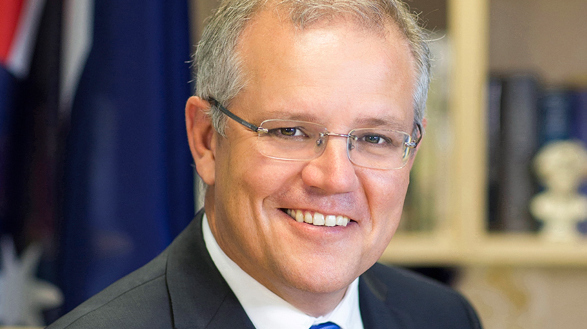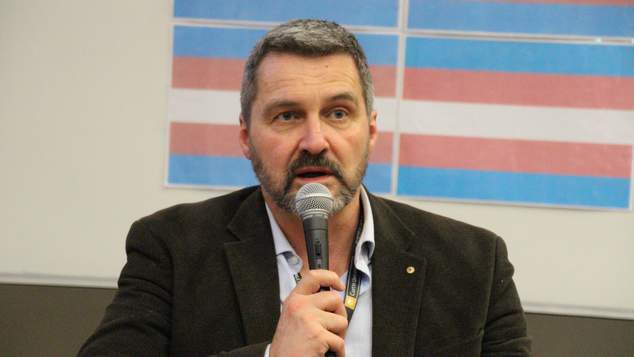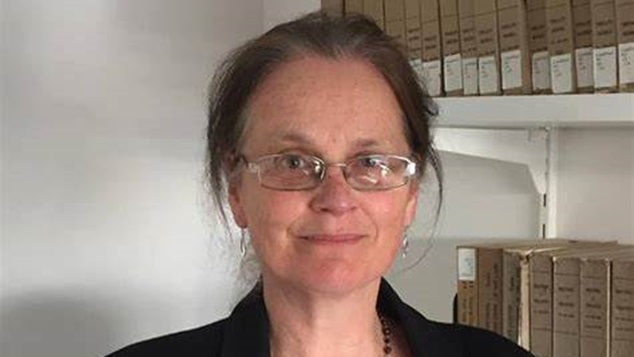
The New South Wales and Tasmanian governments have raised concerns about how the Morrison government’s Religious Discrimination legislation will override their state’s current laws.
- Advertisement -
Key elements of the Religious Discrimination Bill including those protecting statements of belief and religious organisations hiring practices would override current state laws. The opposition from two state Liberal governments adds more challenges to Prime Minister Scott Morrison who was already struggling to get members of his own government to back the bill.
The long promised legislation, that began as a 2017 peacemaking deal for coalition MP’s who were upset that marriage equality passed in Australia, has struggled to get support. The first two versions of the legislation failed, and the third iteration created by new Attorney General Michaelia Cash was introduced into parliament in the final weeks of 2021.
The bill is currently being reviewed by both the Joint House Committee on Human Rights and a separate senate inquiry.
Tasmania’s Attorney General, Elise Archer, submitted the federal bill appeared “to effectively invalidate the operation of the Tasmanian Anti-Discrimination Act”, including the provision banning speech that offends, insults or humiliates a person based on a protected attribute.
Archer said that if the federal law was introduced a person would only need to claim that their statement was a protected statement of belief and the state’s anti-discrimination tribunal would be forced to decline to hear the matter. The onus of proving that a statement breached the legislations threshold of being malicious, intimidating or threatening would lie with the complainant.
Archer has written to the inquiry sharing her view that the legislation would weaken Tasmanians existing legislation.
New South Wales Premier Dominic Perrottet has also voiced his concerns about the bill and the Anti-Discrimination NSW has also raised concern that the bill fails to strike a balance between creating protections for religious freedom, while also allowing existing anti-discrimination laws to be effective.
Hearings for the Joint Parliamentary Committee on Human Rights inquiry into the bill recommence on 13th January with two days of testimony to be heard. The Senate Legal and Constitutional Legislation Committee will conduct hearings on 20th and 21st of January.
Tasmanian groups call for focus on how the legislation will affect their state
A conglomerate of Victoria Rights groups have publicly asked the inquiry to pay particular attention to how the proposed legislation will affect their state, highlighting that Tasmanians have the most to lose if the bill if passed in it’s current form.
The groups have asked both inquiries to conduct hearings in Hobart or, if that is not possible, to hold hearings specific to the impact on Tasmania.

Equality Tasmania spokesperson, Rodney Croome, said federal politicians should be looking to Tasmania’s laws as an example of the best antidiscrimination laws in the country.
“Tasmania has more to lose than any other state or territory because our anti-discrimination laws are the best.”
“The Federal Religious Discrimination Bill directly and explicitly targets Tasmania’s Anti-Discrimination Act and will have a disastrous impact on protections that have been in place for over two decades.” Croome said.
“Unfortunately, there is much misunderstanding and misinformation about our Anti-Discrimination Act interstate so it is critical that both inquiries hold special hearings to hear from all of the different Tasmanian groups affected.”
Croome went on to welcome submissions to both inquiries from the Tasmanian Liberal Government in which the Government says “we continue to strongly advocate for no weakening of our anti-discrimination laws.”
Disability Voices Tasmania, Women’s Health Tasmania, Unions Tasmania and Independent Education Union (Tas) have teamed up with Equality Tasmania to call for a greater focus on their state.
The submissions come after Premier Peter Gutwein said last year he opposes any weakening of Tasmania’s discrimination protections.
“We thank the Tasmanian Government for opposing the federal overrides of our gold-standard Anti-Discrimination Act and call on it to consider a High Court challenge should the overrides become law.” Croome said.
Supporters of the bill often cite a 2015 complaint against Tasmania’s Catholic Archbishop Julian Porteous as a major reason for the federal legislation to be introduced. During the debate over same-sex marriage the Archbishop distributed a pamphlet called ‘Don’t Mess With Marriage’.
Concern was raised over the language in the publication that described same-sex couples raising children as “messing with kids”, with the complainant noting that in Australia the phrase implied criminal activity. After six months the complaint was withdrawn and the case did not progress.

Tasmanian Voices share their thoughts on the legislation
Anja Hilkemeijer, from the University of Tasmania, who has taught constitutional law and human rights law, also put a submission into the inquiry raising concern about they proposed legislation.
Hilkemeijer who has undertaken comprehensive research on Australian and comparative human rights laws concerns the right to manifest religion, and in particular the rights of religious organisations to dismiss employees because they have broken a faith-based rule, raised concerns about the proposed legislation.
The law expert urged the committee to recommend to remove the elements of the bill that allow religious organisations a wide range of exemptions from anti-discrimination laws in the area of employment.
The Tasmanian Council of Social Services also raised concern saying the bill went further the protecting religious belief, and actually introduced a new right to discriminate in the name of religion.
Women’s Health Tasmania said they held grave concerns about the legislation describing it as a law which would “endow some people with positive rights to behave in harmful ways.”
Disability advocates have in Tasmania also put in a submission to the inquiry raising concerns about the the legislation. The Association for Children with a Disability (Tas), Disability Voices Tasmania and Your Say Advocacy Tasmania were part of a joint submission that expressed deep concern about the harmful impacts of the bill.
“We are very concerned that the Religious Discrimination Bill’s provision permitting ‘statements of belief’ will override existing legal and policy protections for people with disability from humiliating, insulting, ridiculing and offensive behaviour and result in an increase in such behaviour towards people with disability.” the organisations said.
The groups said because a large amount of services that people with a disability rely upon are run by faith based organisations, in some locations it would be impossible for a person to avoid engaging with religious groups.
“These services control the delivery of personal care, housing, community access and emergency relief of many people with disability. In many areas of Australia, it is not uncommon for all available support options to be faith-based organisations.”
Concerned Catholics Tasmania (CCT) have also called for the inquiry to give greater focus to protecting the state’s current anti-discrimination laws.
The group said politicians in Canberra needed “to ensure that the bills do not override the Tasmanian anti-discrimination legislation, thereby weakening protections from humiliating, insulting and ridiculing conduct and diminishing existing protections for students and staff in faith-based schools, and for clients and staff in faith-based social services. In essence CCT’s submission is that in Tasmania there is no gap to fill.”
The Tasmanian branch Christian Education National voiced their support for the proposed bill saying they welcomed the inclusion of schools as religious bodies within the legislation, and praised the clauses which allow schools to insist staff live up to the beliefs of the school’s faith.
Catholic Education Tasmania also praised the proposed bill saying there needed to be a clearer allowances for religious based schools the “the right to employ only those staff who agree to uphold such belief and practice in all their work activities and public life.”
Graeme Watson

You can support our work by subscribing to our Patreon
or contributing to our GoFundMe campaign.









